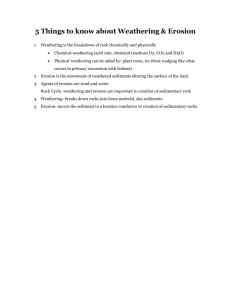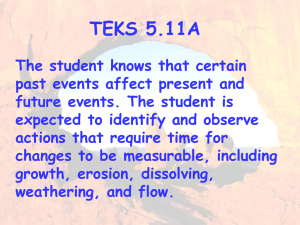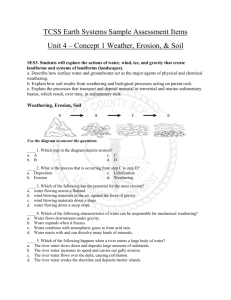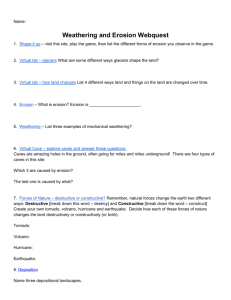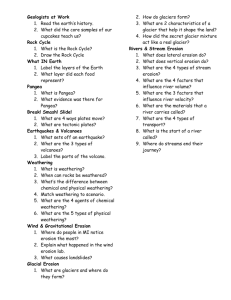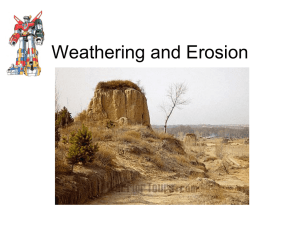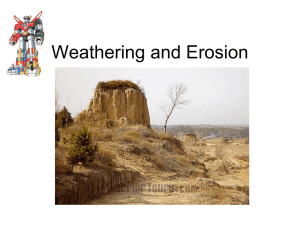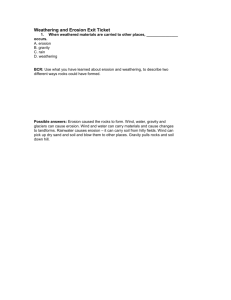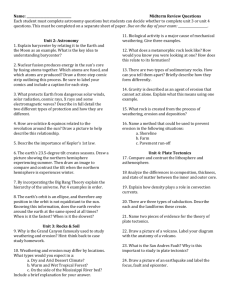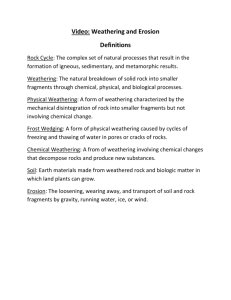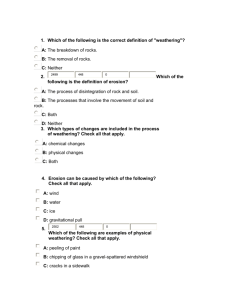HW 4 - Effingham County Schools
advertisement
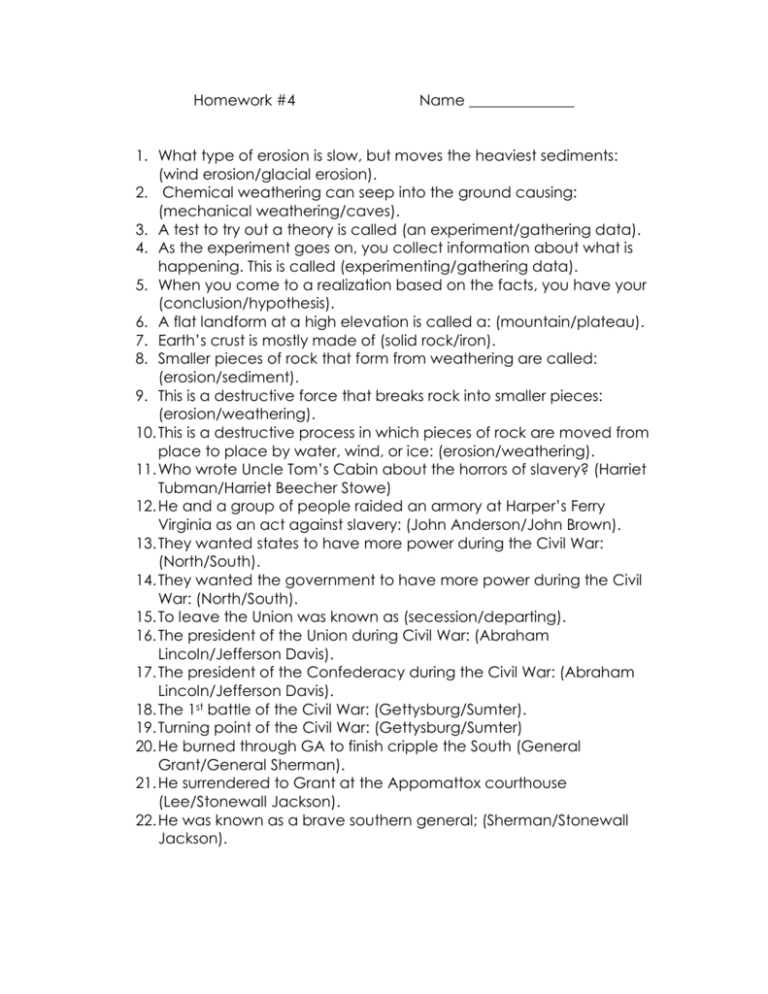
Homework #4 Name ______________ 1. What type of erosion is slow, but moves the heaviest sediments: (wind erosion/glacial erosion). 2. Chemical weathering can seep into the ground causing: (mechanical weathering/caves). 3. A test to try out a theory is called (an experiment/gathering data). 4. As the experiment goes on, you collect information about what is happening. This is called (experimenting/gathering data). 5. When you come to a realization based on the facts, you have your (conclusion/hypothesis). 6. A flat landform at a high elevation is called a: (mountain/plateau). 7. Earth’s crust is mostly made of (solid rock/iron). 8. Smaller pieces of rock that form from weathering are called: (erosion/sediment). 9. This is a destructive force that breaks rock into smaller pieces: (erosion/weathering). 10. This is a destructive process in which pieces of rock are moved from place to place by water, wind, or ice: (erosion/weathering). 11. Who wrote Uncle Tom’s Cabin about the horrors of slavery? (Harriet Tubman/Harriet Beecher Stowe) 12. He and a group of people raided an armory at Harper’s Ferry Virginia as an act against slavery: (John Anderson/John Brown). 13. They wanted states to have more power during the Civil War: (North/South). 14. They wanted the government to have more power during the Civil War: (North/South). 15. To leave the Union was known as (secession/departing). 16. The president of the Union during Civil War: (Abraham Lincoln/Jefferson Davis). 17. The president of the Confederacy during the Civil War: (Abraham Lincoln/Jefferson Davis). 18. The 1st battle of the Civil War: (Gettysburg/Sumter). 19. Turning point of the Civil War: (Gettysburg/Sumter) 20. He burned through GA to finish cripple the South (General Grant/General Sherman). 21. He surrendered to Grant at the Appomattox courthouse (Lee/Stonewall Jackson). 22. He was known as a brave southern general; (Sherman/Stonewall Jackson).
